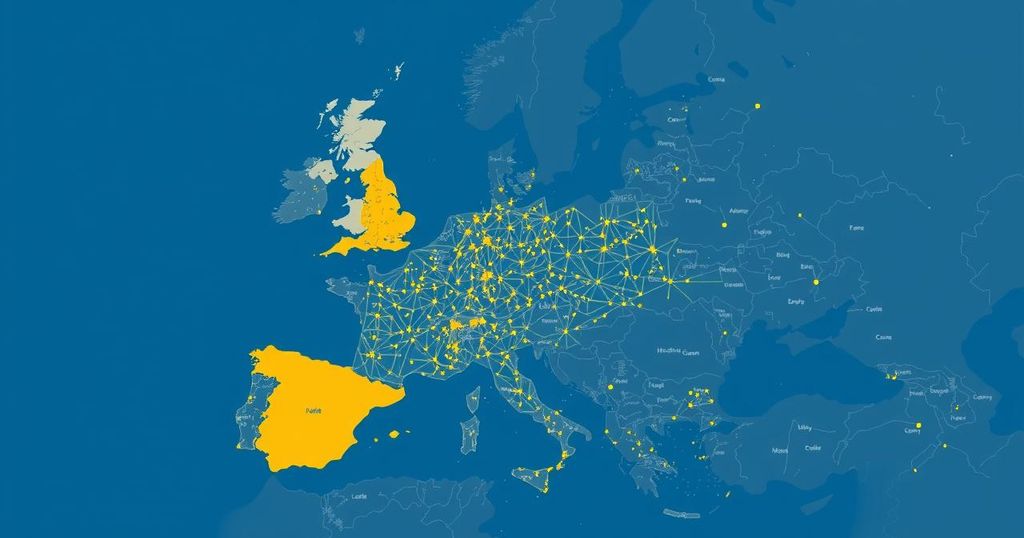The European Union’s Search for Migrant Return Solutions: Exploring Options in Uganda, Uzbekistan, and Albania

The European Union is exploring new strategies to manage unwanted migrants, particularly through the concept of ‘return hubs’ in countries such as Uganda and Uzbekistan. This shift reflects increasing political pressures and rising anti-immigration sentiments within the bloc, highlighting the complexities and challenges of current migration policies.
The European Union (EU) is in the process of identifying countries willing to accept unwanted migrants as it shifts towards implementing new strategies for managing asylum seekers, which include the controversial concept of “return hubs.” This approach resembles a previously abandoned British initiative for deporting failed asylum seekers to Rwanda and may involve relocating approved refugees to secure third nations. Recent developments at an EU summit reflect a growing influence of anti-immigration sentiments in Brussels, following significant victories by far-right parties in Austria, Germany, and the Netherlands. European Commission President Ursula von der Leyen emphasized the need for measures that are “temporary and appropriate” to address increasing border crossings, particularly from Belarus. Although no specific countries have yet been approved for this initiative, potential options being discussed include Uganda, Uzbekistan, and Albania. The Netherlands has indicated Uganda as a potential destination, while Germany is negotiating with Uzbekistan to receive deported refugees in exchange for relaxing regulations for migrant workers. Italy’s recent initiative has involved setting up an asylum processing center in Albania, but this has encountered some initial issues with the first migrants sent there. The EU leaders, in their joint statement, underscored the importance of adhering to EU and international laws during these discussions, specifically regarding the rights of asylum seekers. They called for expedited action to facilitate deportations, acknowledging that currently, only one in five rejected asylum applicants are returned to their home nations. In conversations regarding deportations, Ugandan officials have shown mixed responses, with the Foreign Minister expressing openness to dialogues while acknowledging the country already supports a significant number of refugees. Concurrently, discussions regarding returning Afghan refugees and migrants have escalated, particularly in light of Germany’s ongoing negotiations to manage deportations through agreements with Uzbekistan, which borders Afghanistan.
This article addresses the mounting pressures the European Union faces regarding the influx of migrants and asylum seekers. The backdrop is characterized by rising political pressures within member states advocating for stricter immigration controls prompted by recent hard-right electoral successes. Countries are now exploring unconventional agreements with developing nations to handle the complexities of migrant returns and asylum processing. The possibility of utilizing countries such as Uganda and Uzbekistan as return hubs has sparked significant debate concerning human rights and international laws. This development indicates a strategic pivot in EU migration policy, focusing on deportation and immigration management rather than integration. The situation remains dynamic, influenced by ongoing discussions among member states and the implications of past and present refugee policies.
The European Union is actively pursuing the establishment of new frameworks for managing unwanted migrants, reflecting a significant shift in its asylum policies influenced by domestic political pressures. The exploration of countries like Uganda, Uzbekistan, and Albania as potential ‘return hubs’ is indicative of an emerging trend that prioritizes deportation and offshore processing. This new approach has raised concerns regarding adherence to human rights norms and the practical execution of such policies. As Europe grapples with migration challenges, the path forward remains complex and requires careful consideration of legal, humanitarian, and political factors.
Original Source: www.thenationalnews.com








